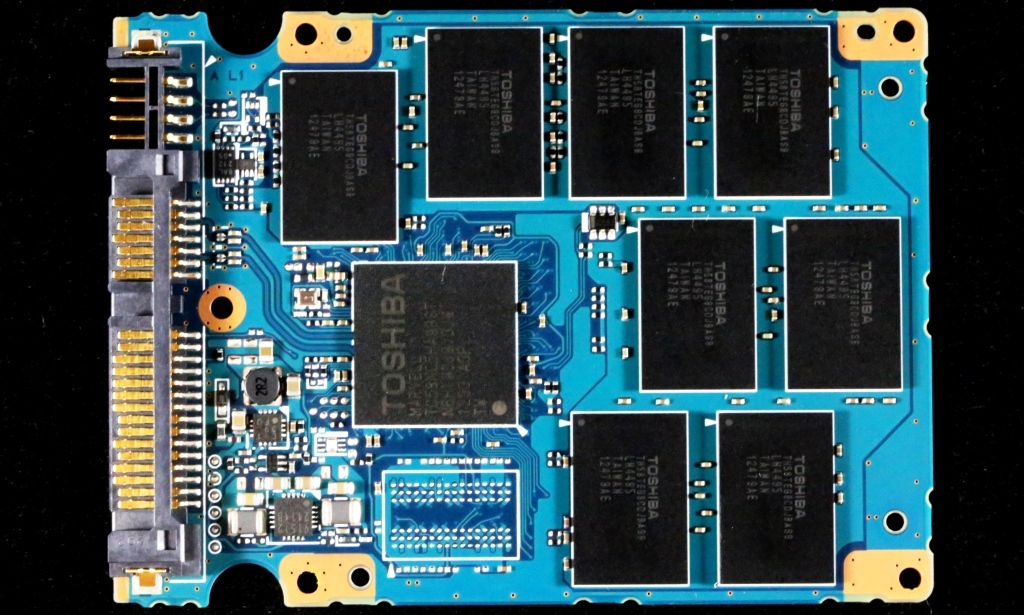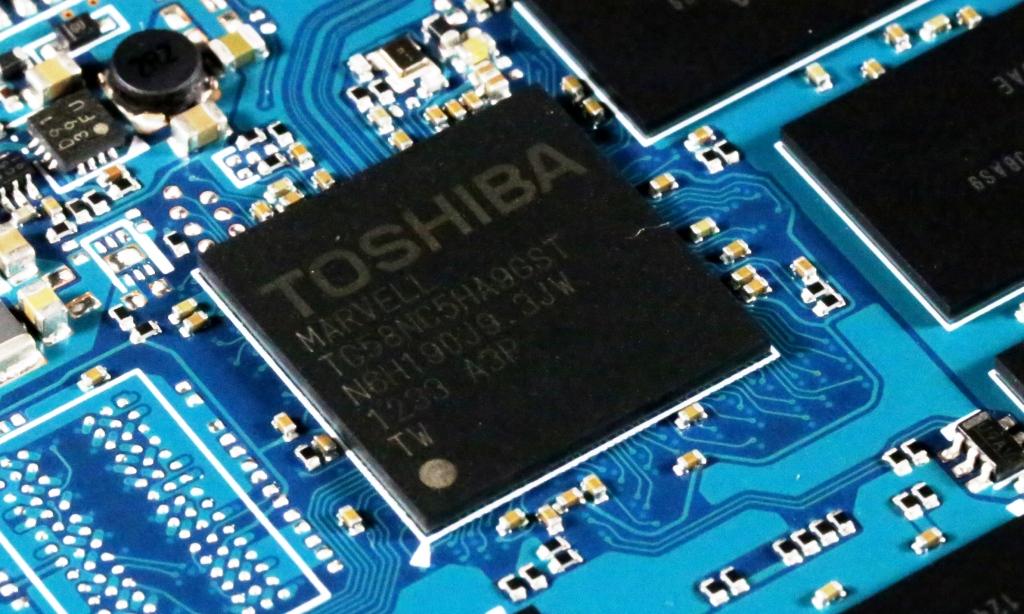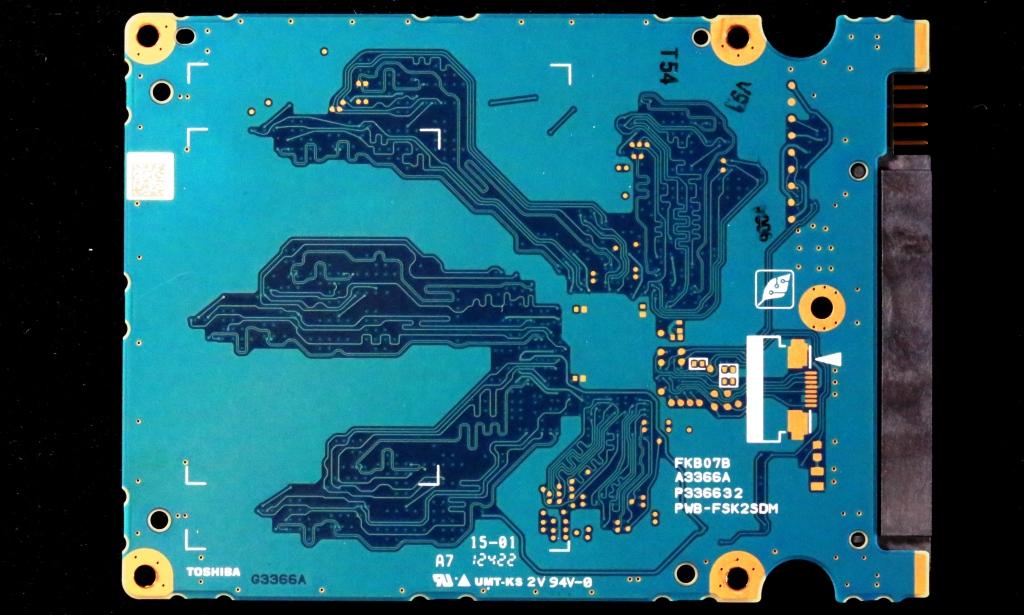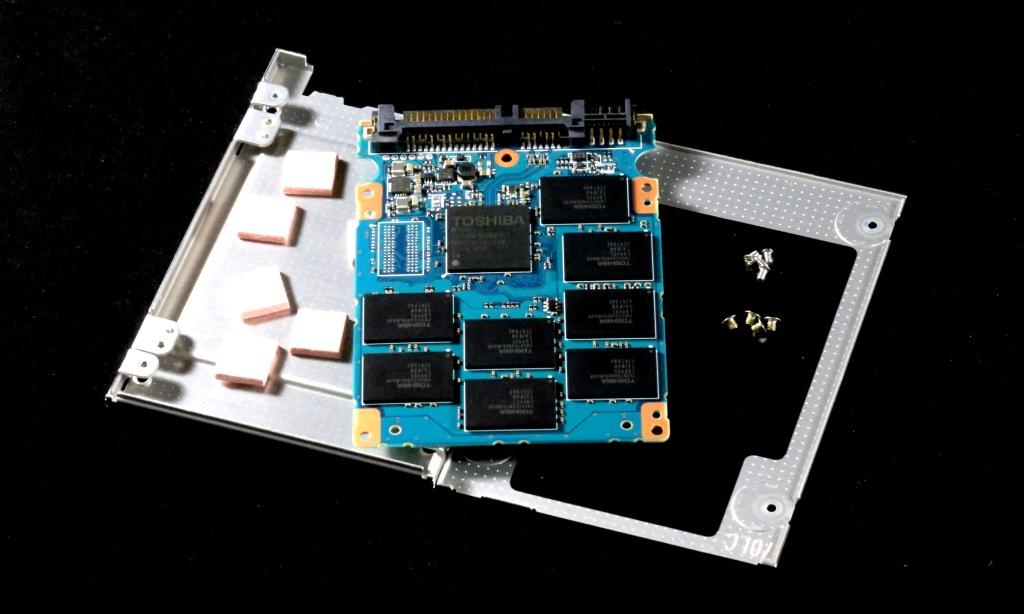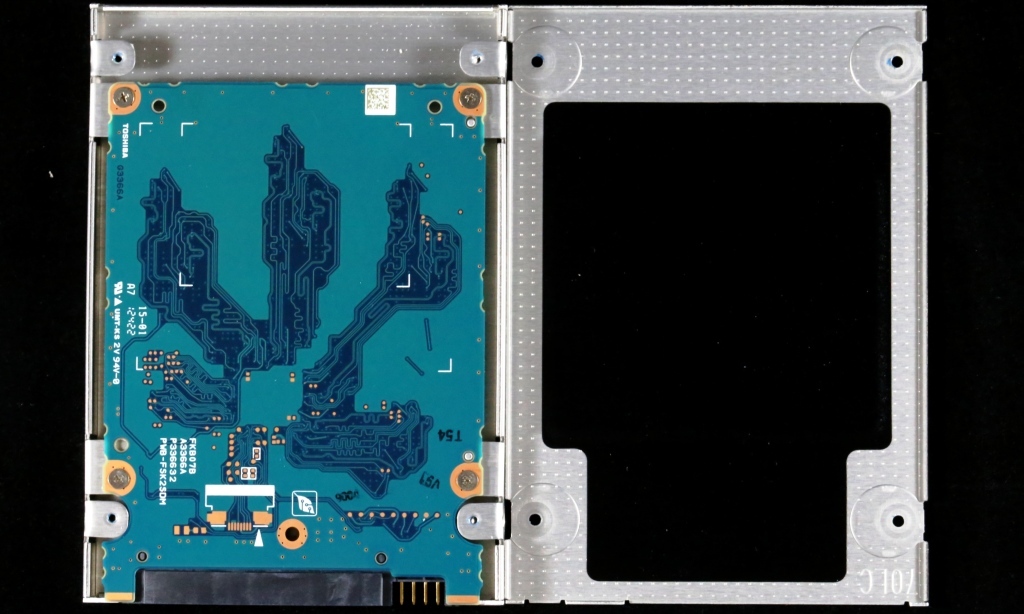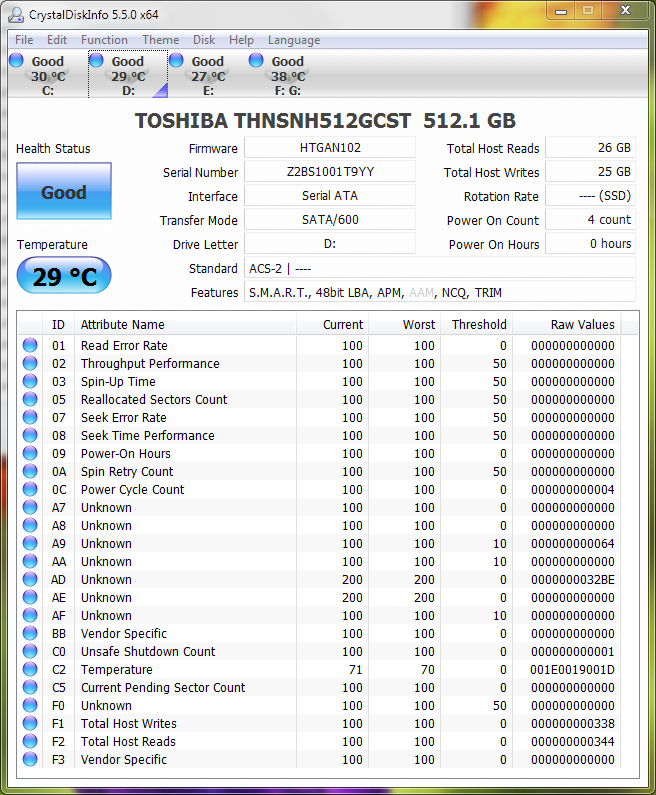Between TSSDR and Tech X in the last while, we have been fortunate to publish reports on some great Toshiba SSD releases to include their newest Q Pro Retail SSD, an exclusive report on their brand new client HG5d M.2 SSD, along with another on their client mSATA SSD. Today’s report is going to show a bit of our last Toshiba client sample, the Toshiba HG5d 512GB client notebook SSD.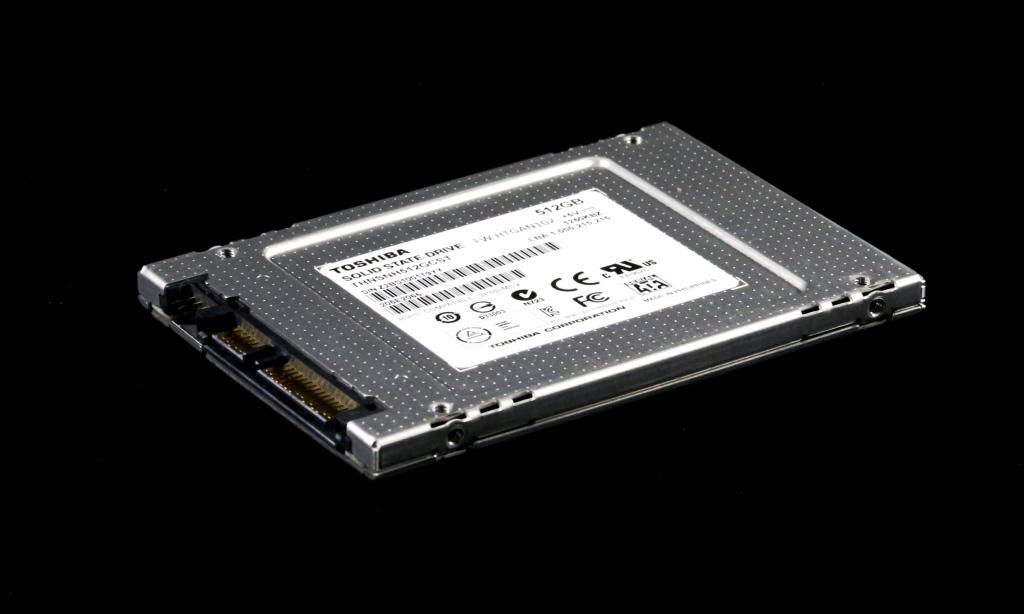
The Toshiba client notebook SSD was the first to really hit the streets for Toshiba’s SATA 3 family and found its way to the retail side of things earlier in the year. It has been recently updated to 19nm Toshiba memory, as well as a new firmware update, and is available in 60, 128, 256, and 512GB capacities. Performance specifications are listed at 534MB/s read and 482MB/s write speeds for 256 and 512GB capacities, with write performance decreasing slightly for 60 and 120GB capacities. This SSD is a 7mm SSD and all Toshiba client SSDs are designated as cSSD hardware.
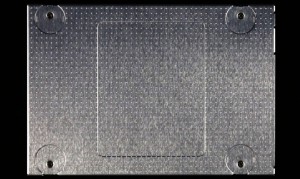
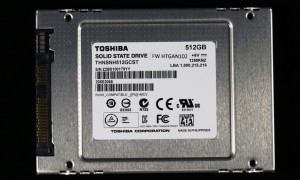 The Toshiba 512GB cSSD is constructed of a two piece aluminum exterior and held together by four screws. Its face is void of any labels and the branding sticker on the bottom identifies it as a 512GB SSD with the latest version of Toshiba’s own firmware.
The Toshiba 512GB cSSD is constructed of a two piece aluminum exterior and held together by four screws. Its face is void of any labels and the branding sticker on the bottom identifies it as a 512GB SSD with the latest version of Toshiba’s own firmware.
The controller on this new gen Toshiba client SSD is a bit out of place as it has different branding completely than what we saw in the mSATA and M.2 versions that we had reviewed and linked in the first para of this report. This controller clearly has the Marvel designation which isn’t as unusual as the fact that the product numbers differ between this and the other SSDs.
As we can now see, the back is completely void of any components whatsoever which meas that they could easily double the memory for a 1TB SSD, if they so choose. As it stands, the memory is Toshiba’s own 19nm MLC Toggle Mode 2.0 NAND Flash Memory and each of the eight modules is 64GB in capacity for a RAW total of the advertised 512GB. It merits mentioning that, once this SSD has been formatted, the available capacity for storage is reduced to 477GB.
A quick look at the SSD disassembled displays eight screws, four of which secure the PCB to the case and four others that secure the bottom plate to the exterior. You might notice the pink rubber pads on the left. These were originally on all memory modules, as well as the controller, and serve the purpose of transferring heat to the exterior casing where it is dissipated.
A quick look from this vantage point aso shows us that this PCB ios not a full size PCB. Considering the possibilities, Toshiba could actually create a single PCB design well above 1TB, however, performance may suffer with this four channel controller.
Crystal Disk Info provides some excellent information about the SSD itself to include its health, product information, ‘power on’ information as well as the characteristics of the SSD. We can see that the SSD is capable of TRIM as it is not grayed out as with AAM.
The first thing we noticed with all three Toshiba client SSDs is that they all arrived with 26GB Total Host Reads and 25GB Total Host Writes; this being accounted for through their product burn in and validation testing.
 Technology X Tomorrow's Technology Today!
Technology X Tomorrow's Technology Today!

